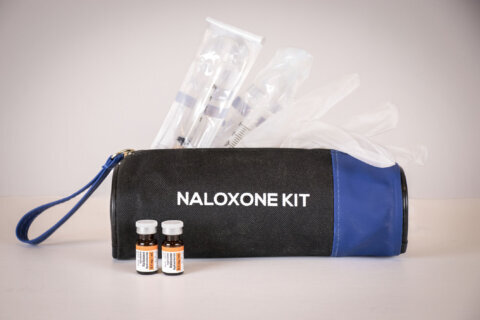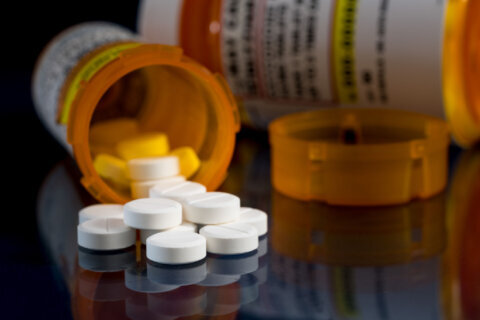This content is sponsored by Emergent Biosolutions.
As the United States begins opening up, many vaccinated people are returning to normal life, however, opioid users are not getting vaccinated at high rates and have higher risks for complications if they contract the disease.
The issue is another hit for a demographic of people who have struggled during the COVID-19 pandemic. The Centers for Disease Control and Prevention counted more than 100,000 drug overdose deaths from April 2020 to April 2021, mostly from opioids and synthetic opioids.
“We found a fairly high level of hesitancy to vaccinate, about 50% of our network of individuals of patients, both in recovery or with an active-use disorder or in treatment, reported that they did not plan to receive or take a vaccine for COVID-19,” Jessica Hulsey, CEO and founder of the Addiction Policy Forum.
Hulsey said the reason for the hesitancy ranges from concerns about vaccine safety to education about the shot. Another factor is a general distrust of healthcare in general.
“We have a lot of stigma when it comes to how we view and treat people with substance use disorders,” Hulsey said. “That stigma can reside not just in the general public, but also in our institutions, such as healthcare providers. When our patients or individuals in recovery have had a negative experience with health care providers, it can make them reluctant or reticent to engage in preventative health care services, regular checkups or to engage to go get vaccinated.”
Hulsey said the vaccine is highly recommended for those with addiction disorders and those who are not yet vaccinated need to take extreme precautions because they are more likely to become severely ill if they contract coronavirus.
The Addiction Policy Forum launched a Navigator Project to send social workers into the community to answer questions about the vaccine.
Coronavirus is likely to have had a large impact on those with opioid addiction outside of the effects of the disease, though.
Overdoses may have increase because people were isolated during quarantine and may not have had someone near to save them if they overdosed. People in general faced higher instances of mental illness during the pandemic, which may have led to more drug use and the rise of more potent synthetic opioids are making overdoses more common.
“We saw one and three people in a research study that we ran reported disruptions in service, meaning that they could not access needed services for their substance use disorder, whether that was treatment and recovery support, harm reduction services, Naloxone access, syringe service or program access,” Hulsey said. “We also saw an increase in opioid use, 20% of our network reported increase use, and that was both on the patient and the caregiver and family side. The real drivers of that was isolation, loneliness, boredom, fear. And then when you take away the needed support structures that we really have relied upon, whether that’s our mutual aid support group meetings, treatment access or access to your normal services that you need that are a part of your recovery pathway. The convergence of those two, meaning increased stress and anxiety and fear, with the loss of the services that we rely on, really created a perfect storm for relapses and recurrence of use for overdoses.”







